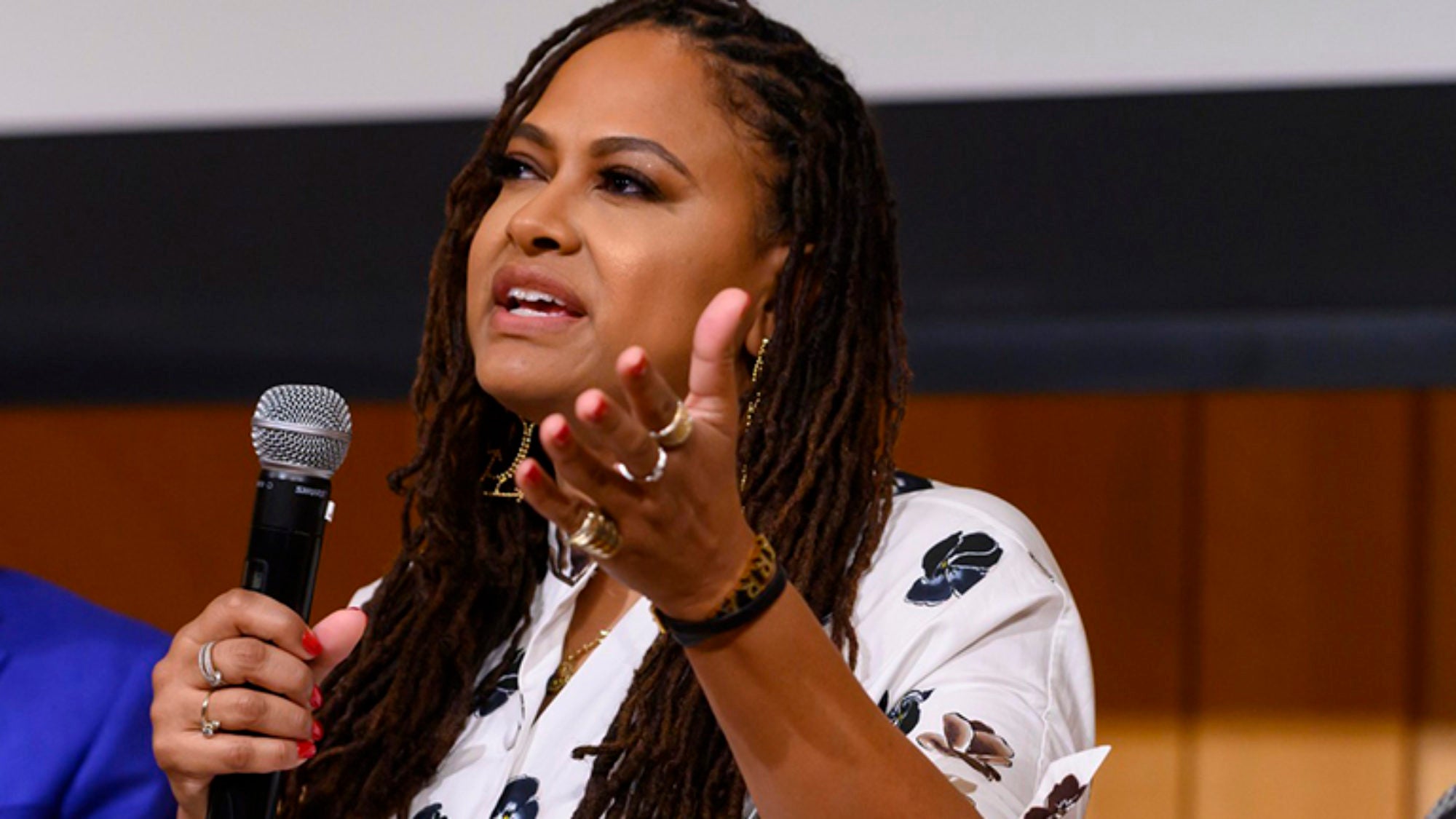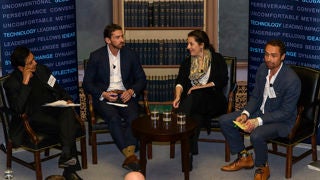
Title: Georgetown Hosts First Public Interest Technology University Network Conference.
Award-winning filmmaker Ava DuVernay was among those speaking to the importance of public interest technology at the first PIT-UN conference at Georgetown.
The university hosted the inaugural convening of the Public Interest Technology University Network (PIT-UN) today, featuring award-winning filmmaker Ava DuVernay, Ford Foundation President Darren Walker and other leaders from higher education, philanthropy and public policy.
The network, convened earlier this year by the Ford Foundation, New America and the Hewlett Foundation, is a partnership of 21 colleges and universities dedicated to building the nascent field of public interest technology, as well as growing a new generation of civic-minded technologists and digitally fluent policy leaders.
“The story that technology is telling about us may not be the true story,” DuVernay said at the conference. “The creative community needs to step in and embed it in our entertainment-based storytelling.”
DuVernay, Walker and others at the conference spoke to the importance of inclusive technology.
Network of Innovation
Public interest technology is a broadly defined and emerging area of study that combines digital innovation and public policy.
Since the launch of the network, PIT-UN member universities have created joint degrees, exchange programs and cross-disciplinary initiatives to begin developing a robust pipeline of future technologists and leaders seeking to pursue technology careers with an emphasis on the public good.
Georgetown’s Tech & Society Initiative, launched earlier this spring, is a leading effort in this area – both through education, creating new courses that embed ethics and governance into tech curricula, and through direct impact, innovating new policies for responsible progress.
“We see in our lives a rate of technological change that is unprecedented and we want to use it to impact society exponentially,” Georgetown Provost Robert Groves said in kicking off the afternoon’s public session.
Convening Experts, Luminaries
The public session of the conference drew attendees from network member university presidents and provosts, as well as technologists, policymakers and government officials, philanthropists, students and faculty members.
Notable speakers included Harvard University professor Latanya Sweeney, and two agency commissioners – Noah Joshua Phillips from the Federal Trade Commission and Geoffrey Starks from the Federal Communications Commission.
“We need, today, in our new digital world, to articulate and defend and protect the idea of the public interest in a digital world,” Walker said at a panel session on Technology, Race, and Our Future. “Unfortunately, that public interest has been defined primarily by private interest and corporate interest.”
Faculty PIT-UN Grants
Two Georgetown faculty teams were announced as PIT-UN grant recipients, out of a total of 27 grants awarded nationally through the organization’s “Network Challenge.”
The challenge is designed to support the development of new public interest technology initiatives and institutions in academia, and foster collaboration among the network’s partner institutions.
Alexandra Reeve Givens, executive director of the Institute for Technology Law and Policy and Paul Ohm, faculty director of the Georgetown Center on Privacy & Technology, were awarded $36,000 for their proposal “Building Bridges: Strengthening Cross-Disciplinary Connections in Computer Science and Law.”
Maggie Little, founding director of the Kennedy Institute of Ethics’ Ethics Lab, and Jason Matheny, founding director of the Center for Security and Emerging Technology, were awarded $85,991 for their proposal “Embedding Ethics for Career Training in the Governance of AI.”
The Network Challenge Grants are funded through the support of the Ford Foundation, Hewlett Foundation, Mastercard Impact Fund, Siegel Family Endowment, Patrick J. McGovern Foundation, Schmidt Futures and Raikes Foundation.




